Intercultural Crosstalk
A Conversation with Foreign Restaurant Owners -About Daily Life of a Foreign Restaurant Owner-
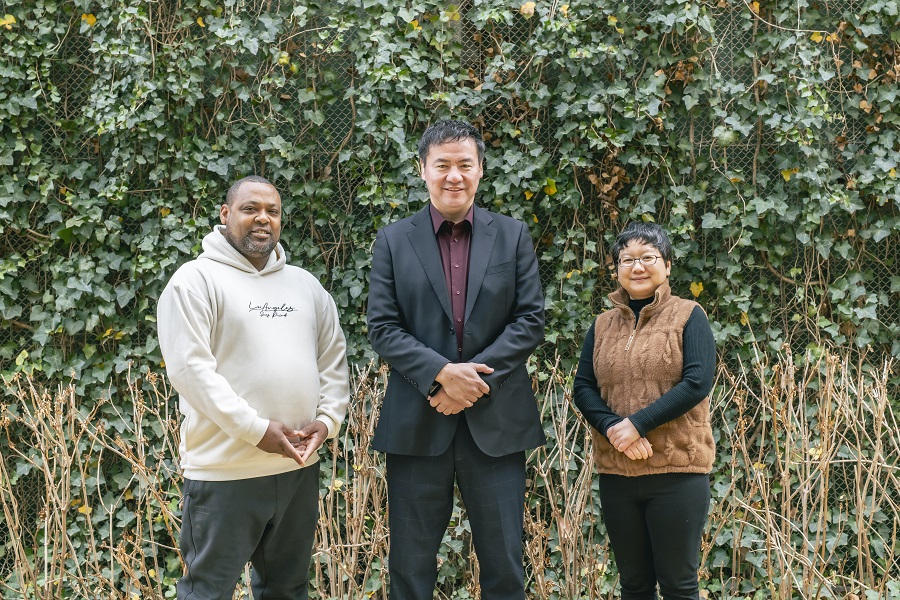
See their profiles here
Click for "1st Round" HereRound 3: Daily Life of a Foreign Restaurant Owner
In the final session of our three-part series of round-table discussions with foreign restaurant owners, we asked them to talk about the "daily life of a foreign restaurant owner".
They probably spend most of the day in the restaurant, since there are many tasks such as preparing food before opening and cleaning up after closing. The COVID-19 pandemic must have caused some changes in their lives as well.
We asked the 3 participants, who are always busy working, to talk about their restaurant's business days and how they spend their days off.
About the Restaurants' Business Hours

"Momoenka" has shorter business hours than before the COVID-19 pandemic. Lunch is served from 11:30 to 14:30 (last order), with a break from 15:00. Evening hours are from 17:00 to 22:00 (last order), closing at 23:00. In the past, we would let customers in after closing time, but now we make our closing times clear.
Same goes for "Little Ethiopia". Since the COVID-19 pandemic, we have focused on lunch, and we are open from 17:00 to 22:00 in the evenings.
Ulaan Baatar is open for lunch from 11:30 to 14:00 and for dinner from 17:30 to 22:00. Before COVID-19, it was open until 23:00. We started serving lunch about 2 years ago.
Q. What time do you go to the restaurant in the morning?
We clean everything up the day before and leave so we can open the store right away on the next day. In the morning we just cook the rice, so I arrive about 30 minutes before the restaurant opens. There is a separate location where the food is prepared, and the restaurant does the final frying or baking before serving, so we don't have to do that much preparation.
We arrive at the restaurant at 9:00. If we have a lot of orders, my husband goes to the restaurant at around 6:30. Our house is quite close. We have 3 people working in the restaurant, so if we want to come earlier, I may ask my husband to take a break early to accommodate our needs.
We go in a few hours before opening. Injera, the staple food of Ethiopia, is made by fermentation, so it requires a lot of preparation. For example, what we serve today was prepared a week in advance. It has to be made whether the guests come or not. Since we cannot keep food for later use, we make only what we will serve today.
How Do You Spend Your Days Off?
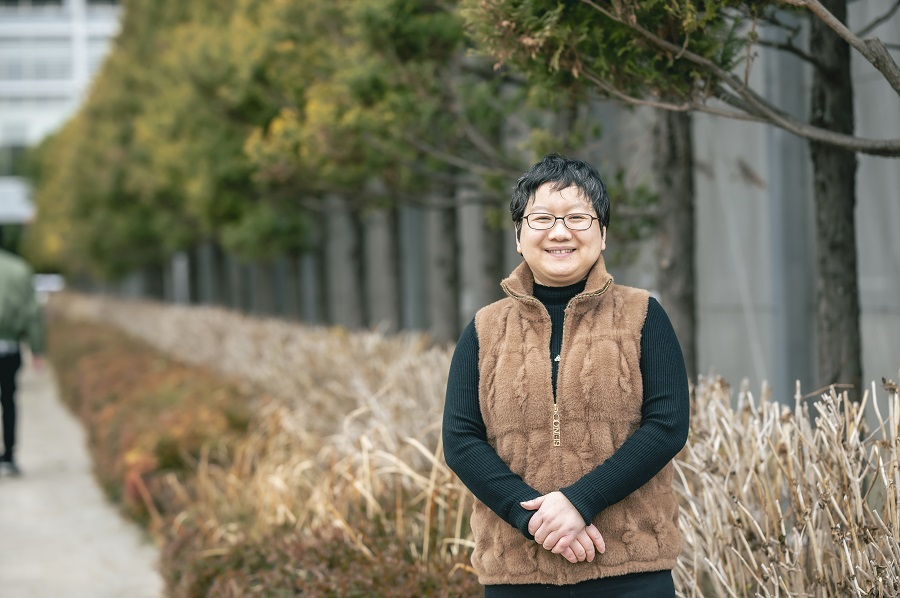
Our restaurant is open 365 days a year, even during New Year's. The reason for this is that Mongolians come to Tokyo for fun in this season since their companies are on vacations. During the year-end and New Year's holidays, not many restaurants are open, so they come to ours. There are many Mongolians, but Japanese people also come. We are busy during the New Year's holiday. Those who work on New Year's Day can take turns taking a day off on another day, for example. I myself have not taken a day off in many years. I haven’t enjoyed my hobbies like snowboarding or golfing.
The year-end countdown means that we are open until the morning. When other restaurants are closed, we stay open. Everyone gathers here, so we work. My wife is the main operator of the restaurant, so she is off once a week on Mondays. I am an office worker, so I work Monday through Friday at the office, and on Saturdays and Sundays I help out at the restaurant. I don't have a day off. I am busy on weekends.
We are closed on Thursdays. When we have a lot of take-out orders, we make them on Thursday, which is our day off, so sometimes we lose the day off. When we don't have any errands to do, we sleep well, go to a hot spring, or go out to eat in the neighborhood.
I have been in Japan for 18 years and have never returned to my country. Due to various problems and the change of government, I am unable to return to my country now. My family can come to Japan, so I can see them.
I plan to return to my country twice this year. I did not go back during the COVID-19 pandemic, but I used to always go back at least once a year. I close the restaurant and go back for about 10 days.
I go back every year, sometimes once a year, sometimes several times. I leave for about a month because I can leave the restaurant in the hands of my employees.
I am planning to increase the menu of the restaurant. I am thinking of various ideas, such as adding Chinese-style skewers, etc., although they are not Mongolian dishes.
When You First Came to Japan, Did You Want to Have Food From Your Home Country?

Yes, I did want to eat food from my home country.
I didn't want to eat Mongolian food because the Japanese food was so good.
At first I was very lonely because I did not know anyone.
As for the food, Japan and Ethiopia are completely different. In Africa, food is served on large plates and everyone eats together. I didn't know how to use chopsticks at all, nor did I know how to eat a variety of dishes in small plates. The food was never divided into individual portions.
In the beginning, I ate at people's places who I knew had Ethiopian ingredients.
My husband can make anything if he has the ingredients. It used to be hard to get, but now we can find almost any Chinese vegetable. During COVID-19, some Chinese people rented a large farm in Japan and started growing Chinese vegetables. Since there are not many kinds of vegetables in Japan, we purchase about 5 to 6 kinds of Chinese vegetables a week to serve Chinese people. During COVID-19, it was very difficult to get Chinese vegetables and fruits, such as lychee.
Q. How did you overcome the COVID-19 pandemic?
During the pandemic, at first I thought the restaurant would shut down, and I told the real estate agent that as well. But I couldn't stop right away and was told to "try hard for 6 months first," so I started a take-out menu of side dishes and dim sum. We were serving seasonal Chinese dishes that were separate from the back-of-the-house menu we served in the restaurant. Like my daughter, I wanted children who grew up in Japan to know about Chinese culture. It was very popular, but my husband has a chronic illness, so we closed the restaurant completely for the next two years.
We continued to do course meals during the pandemic, but there were many days we closed. We were only open in the evenings, a few times a week, keeping up with the requests. I thought that if customers left during the pandemic, it would be difficult to get them to come back. I also had a child and felt anxious, so I I did things like deciding how many customers I would have.
Right after the pandemic, we started selling meat and other ingredients that we usually use in the restaurant, making them in things such as "buuz" (like dumplings) and xiaolongbao (other type of dumplings), online. The reason we were able to switch to online sales right away was because we had originally prepared the machines and other equipment for manufacturing in preparation for the Olympics. We were going to prepare meals for the Mongolian athletes and staff for the Olympics.
The COVID-19 pandemic has changed our lifestyle and our customers. This may be due in part to the increase in home-based work. Lunch is about 1/3 of our previous customers. Many people do not drink alcohol at meals anymore.
Are the Popular Menus the Same in Japan as in Your Home Country?
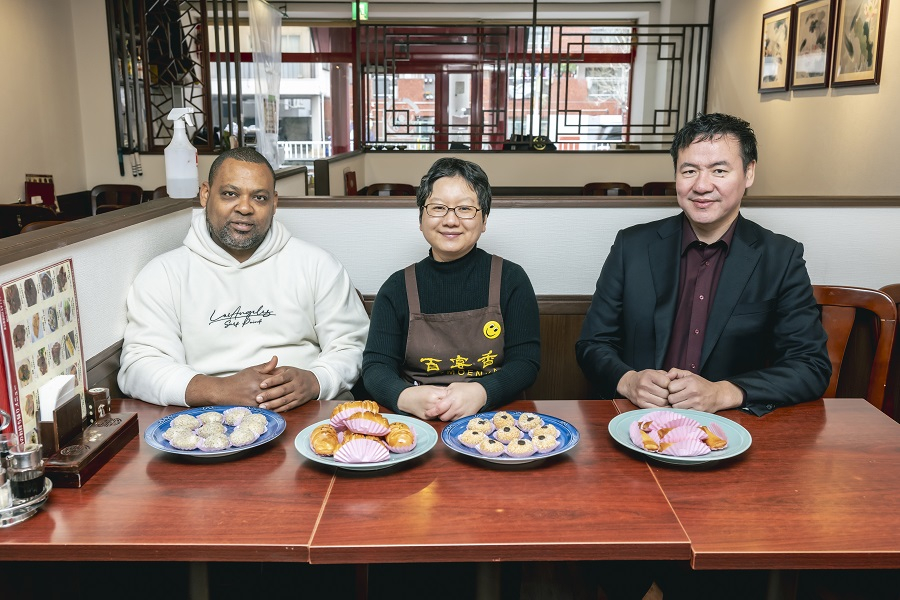
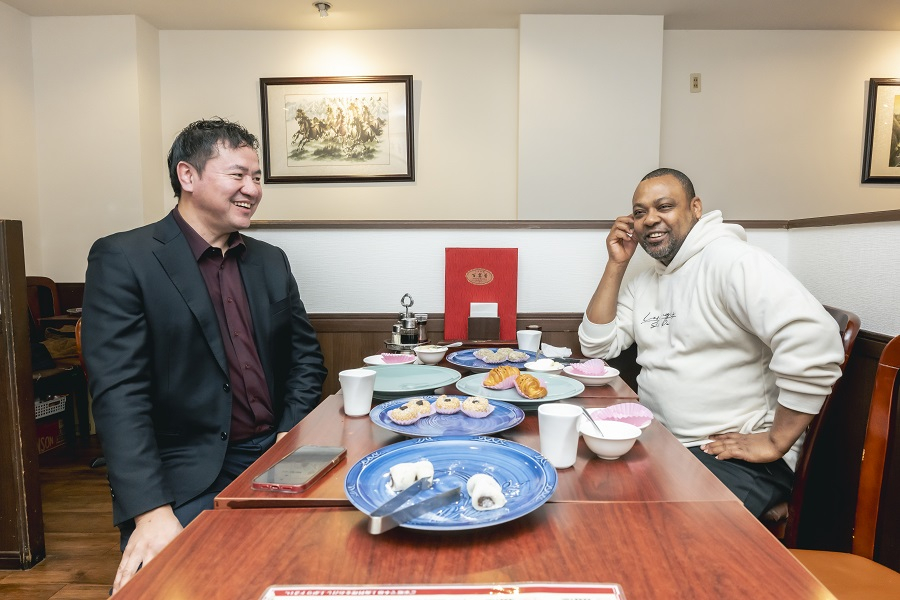
It is not the same. Chinese customers order the authentic Chinese menu, even if it is expensive. If they think it would be more expensive to make it themselves, with the cost of ingredients, etc., they eat here. Shanghai wontons are popular with both Chinese and Japanese customers. It is the soul food of Shanghai, and everyone eats it in the morning or at lunchtime. Whenever Chinese students come to our restaurant, they always ask for it.
Another popular dish is Yakuzen (medicinal) Hot Pot. It contains many kinds of medicinal herbs and not only does it taste delicious, but we also receive comments from people who have eaten it, such as, "My makeup looks better the next day," or "I feel healthy for a week".
As one might expect, the popular menu is a bit different. Ethiopian food is served on large plates and eaten together with many people. For the TV shoot, I made a mahiberawi with several different side dishes on top of injera. It became popular because people who saw the TV show wanted to order the same dish because they could eat all the Ethiopian dishes at once. Now, mahiberawi is our main dish.
Popular menus in Japan and Mongolia are different. In Mongolia, there is almost no boiled salted meat in restaurants. It is something you only eat at home. But when I served boiled lamb at the restaurant, it became the most popular menu item. On the contrary, Mongolians do not ask for boiled meat. They ask for "buuz," which is like dumplings. It is interesting.
Q. Do you have a message for people who are going to come to your restaurant for a meal?
Our customers' pleasure is our pleasure.
Japanese people want to know what they don't know, and they will experiment with anything, even food. I think it is a very good thing. If anyone wants to take a chance on Ethiopian food, please come and try it.
I think Mongolian cuisine is unimaginable, and I am grateful to our Japanese customers who are brave enough to come and try it, because they don't know what to expect until they try it once.
How was the round-table discussion of foreign restaurant owners?
There are many restaurants in Tokyo where you can enjoy dishes from all over the world, and people from many different countries work there. Through the stories of the 3 participants, you may have felt a little closer to the people who work in these restaurants.
Even if you have never visited a country before, you can get a taste of its culture through its cuisine and staff. If it is a country you have been to before, you may feel a sense of nostalgia. In this way, sometimes it is good to go to a restaurant to feel something extraordinary.
Yang's "Momoenka" and Unuruu's "Ulaan Baatar" can be visited anytime during business hours. Ephrem's "Little Ethiopia" recommends making a reservation if you are in a group.
Restaurants of the 3 Participants
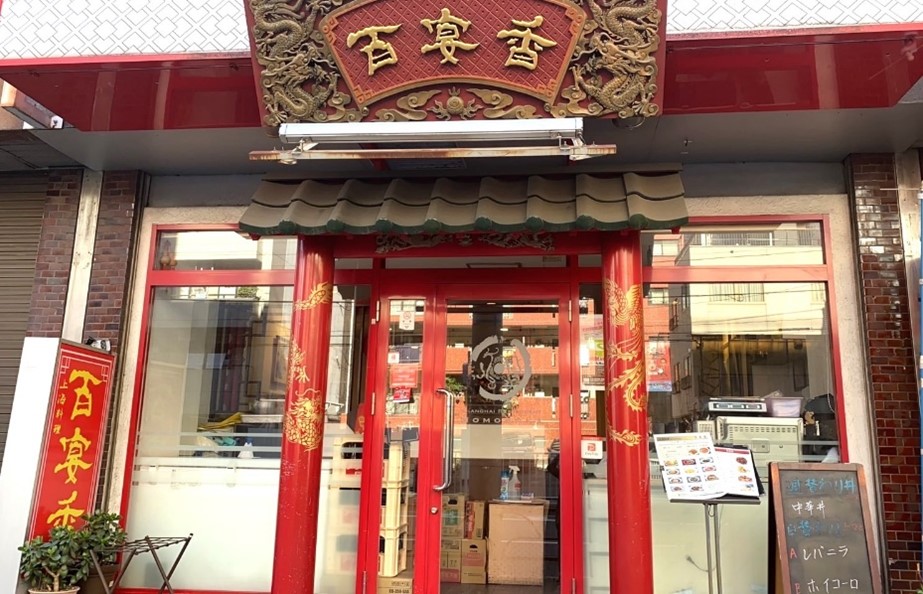
-
Momoenka (Yang's Restaurant)
TEL:03-5619-1082
Opening Hours: 11:30~15:00 / 17:00~23:00
Address: 4 Chome-2-1-108 Taihei, Sumida City, Tokyo
https://maps.app.goo.gl/dnscbSnUCEvx7raL6
- Little Ethiopia Restaurant & Bar (Ephrem's Restaurant)
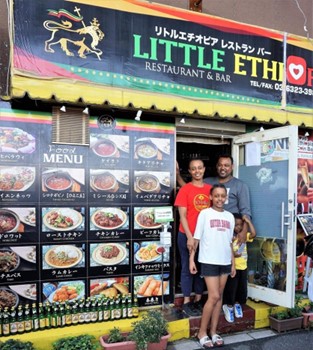
TEL:03-6323-3983
Opening Hours: [Tue~Fri]11:00~14:00 / 17:00~23:00
[Weekends and Holidays]17:00~23:00
Address: 3 Chome-23-6 Higashiyotsugi, Katsushika City, Tokyo
https://maps.app.goo.gl/2zaaB9ATtgK6hbHw6
- Mongolian Cuisine Ulaan Baatar (Unuruu's Restaurant)
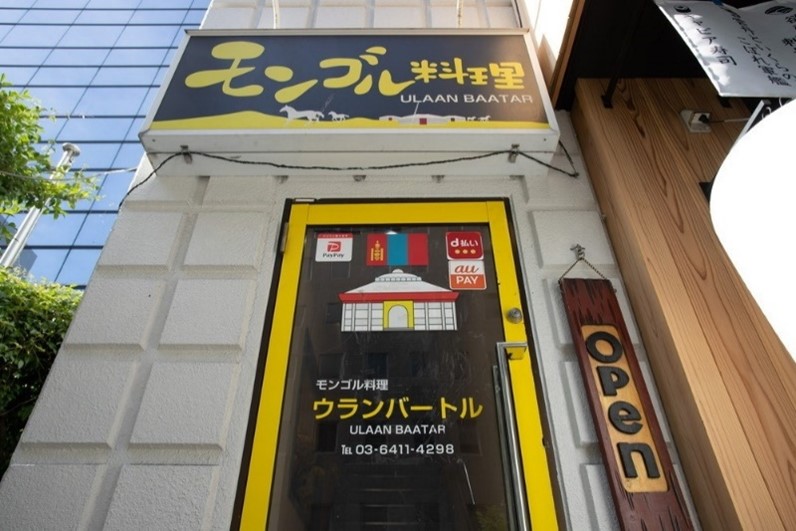
TEL:050-5600-4444
Opening Hours: 11:30〜14:30 (L.O.14:00)
17:30〜22:00(L.O.21:30)
Address: 3 Chome-22-11 2F Ryogoku, Sumida City, Tokyo
